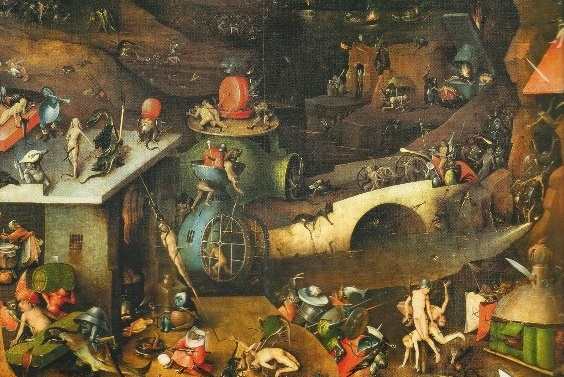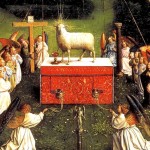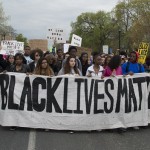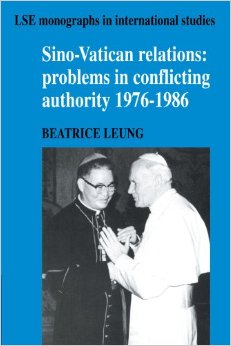
This is a guest post by Dr. Justin Tse of the Comparative Religion Department at the University of Washington. I am on the postdoc market myself and hope to avoid some of the problems he describes below:
===================
Two of my journalist colleagues in Vancouver may have broken the Internet in Vancouver and Hong Kong. I am not a journalist. However, as an academic, I get the occasional interview from journalists, and I have learned that what it means to be a ‘colleague’ with a journalist is that they ask you difficult questions and you tell the truth to earn their respect. Fudge the facts, and die.
My two journalist colleagues, Ian Young and Douglas Todd, have both interviewed me before, and thankfully, I told the truth. I told Douglas Todd, the Vancouver Sun’s spirituality and diversity columnist, the truth about Chinese Christians and Chinese celebrating Christmas in global cities. After earning my street cred with the South China Morning Post’s Ian Young on youth who transition to adulthood between Vancouver and Hong Kong, I told so many truths to the South China Morning Post’s Ian Young about Chinese Christians opposing a transgender school policy that it almost got us both drawn and quartered, but that didn’t stop him from covering a talk I did at Regent College on Hong Kong’s ‘evangelical public sphere.’
Now, they are on the case again. Both of them have recently caused stirs about unaffordable housing in global cities (see here, here, and here). This is, of course, a topic that has to get you going on a blog like Artur’s where the man himself was almost torn to pieces for suggesting that Catholic parishes should help out with daycare. Yes, I was the one who wrote that Ignatian rebuttal back in He-Who-Shall-Not-Be-Named’s face.
But the real reason I’m writing this is because Douglas Todd and Ian Young have been recommending the work of my doctoral supervisor, David Ley, for the general public to read. Now, I have been warned that it’s a faux pas to toot your own supervisor’s horn in public. But for crying out loud, this is a blog dedicated to Rabelaisian Catholicism. Surely, I get a free pass for vulgarity.
So here goes.
In Millionnaire Migrants: Trans-Pacific Life Lines, Ley discusses the everyday lives of migrants from Hong Kong, Taiwan, and South Korea to Vancouver, where they have bought into Vancouver’s international property market, lived their lives between Asia and North America in split family arrangements, and attempted to build a new civil society in Vancouver. It’s fascinating, but the real reason that Young and Todd have been promoting Ley’s work is because Young has recently been going after an academic pundit, Tsur Somerville, who pontificates on the news about the no-correlation between immigration and the madness of Vancouver’s property market, where a two-bedroom house is known to cost a million dollars on a strong Canadian dollar. It turns out, Young reveals, that Somerville has done virtually no peer-reviewed academic research on the topic, and his academic institution is funded by property developers. In contrast, Young and Todd both say that Ley, a ‘meticulous’ geographer (in Todd’s words), gets no funding and little media air time, but has a book that contests the facts. This story has quite literally broken the Internet in Vancouver: Twitter is both ablaze with the story.
In the spirit of the preferential option for the poor, I recommend that you buy Ley’s book off of Artur’s site in the hope of tapping into this very important debate on affordable housing in global cities and giving Artur an extra financial boost while you’re at it. It’s important. If Ley is writing about ‘millionaire migrants,’ then buying his book here will also help out a broke postdoc. After all, it’s Lent. That’s why I’m not putting it on my own blog, Religion Ethnicity Wired. This post is written as a guest post on my friend Artur’s blog because it’s the right thing to do, especially if you believe that a guy who is as meticulous as Artur will be rightly recognized for his contributions to the theologization of literary scholarship.
Meanwhile, here are some other books on migration to Vancouver and its notoriously crazy property market that you can buy. For the record, no one is paying me to say any of this – not Artur, nor David Ley, not Ian Yougn, not Douglas Todd. It’s Lent, and as an answer to that 2003 mother of all romantic comedies Love Actually, Lent is the time when you really tell the truth.
Kris Olds, Globalization and Urban Change: Capital, Culture, and Pacific Rim Mega-Projects
Olds is a master of telling stories. His stories are about big urban spectacles designed to attract global investment. In this book, he tells two of those stories. The first is about how Hong Kong tycoon Li Ka-shing used family connections to buy up the former Expo ’86 lands in Vancouver’s False Creek and transform it into a condo landscape. The second is about Pudong New Area in Shanghai, a big urban project used to showcase Shanghai’s influence in the global economy. If you want to learn more about urban spectacle, buy this book.
Aihwa Ong, Flexible Citizenship: The Cultural Logics of Transnationality
This is a classic in transnational studies. It’s about the calculations of some diasporic Chinese families to split their families across various regions of the world in order to participate in what Marxist geographer David Harvey calls ‘flexible accumulation,’ the conditions of circulating capital in an era of economic globalization. It’s a theory book, and a good one too, because it posits that ‘Chineseness’ is sometimes just a name-it-and-claim-it ideology that helps some people split their families, get their cash, and laugh all the way to the bank. It’s a fun book to read alongside David Ley too. Ley really likes Ong, but in the 1970s and 1980s, he was David Harvey’s nemesis – and that’s all I’m going to say about what I have to say in Syndicate Theology’s upcoming forum on Harvey’s new book, Seventeen Contradictions and the End of Capitalism.
By the way, if you like Ong’s Flexible Citizenship, you should consider getting the edited prequel with Donald Nonini called Ungrounded Empires: The Cultural Politics of Modern Chinese Transnationalism.
Gary Hamilton, Cosmopolitian Capitalists: Hong Kong and the Chinese Diaspora at the End of the Twentieth Century
This is an edited collection of essays about the implications of the 1997 handover in Hong Kong for the Chinese diaspora. It’s a great introductory book for anyone who needs to understand the background to all of this ‘flexible citizenship,’ ‘ungrounded empires,’ ‘mega-urban projects,’ and international property market business. Some of the authors we’ve discussed here are in it too.
Katharyne Mitchell, Crossing the Neoliberal Line: Pacific Rim Migration and the Metropolis
When I first got into grad school, David Ley handed me two books: Kay Anderson’s Vancouver’s Chinatown and this book here by University of Washington geographer Katharyne Mitchell. In some ways, these are the books that marked my graduate education from the beginning – Anderson’s was much more historical, but Mitchell’s is a theoretical tour de force. Seeking to add nuance to the Fukuyaman ‘end of history’ thesis, Mitchell explores what happened in Vancouver when Hong Kong Chinese migrants brought their own brand of Hong Kong capitalism to bear on Vancouver’s property market. One of the key questions that she asks is whether it was racist for some people to want to stop this kind of migration and property speculation. That question continues to plague Vancouver’s public sphere.
Johanna Waters, Education, Migration, and Cultural Capital in the Chinese Diaspora: Transnational Students Between Hong Kong and Canada
Jo Waters is my intellectual older sister – another student of David Ley’s. This book is her masterful account of how some transnational families calculated that it would be a good idea for their kids to gain residency in Vancouver, get accepted into university, and then return to East Asia with the cultural capital by which they’d be able to get top jobs faster. She does it sensitively, attentive to the personhoods of the people that she is interviewing and implicitly critiquing. Indeed, this is a hallmark of some of the best geographical research out there – it’s not all just theory, and it’s not all critique, because at the end of the day, it’s about people as persons who are exercising agency in ways that they think best. Read it: it’s a very human account of personal calculations for the sake of capital.
—
Artur also tells me that Seattle is having similar issues with an international property market and the University of Washington’s international student initiatives. I’ll have to plead the Fifth on this one – my research is really on religion, and I haven’t yet looked into the same housing issues in Seattle. But this makes me curious. Perhaps – perhaps – I’ll do a bit of digging here too because of this story.
















